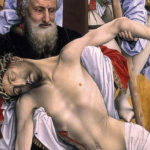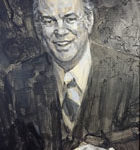
Relationship with God is first understood as an individual relationship – as a loving parent with an only child. With God each of his children is aided in first meaning holding the perception that God treats him or her as though the person is the only one of children. That is to say individuals should work through their spiritual lives perceiving their relationship with God as though they alone (separate from all others) are responsible to account for themselves in the final evaluation (judgment) of a life lived. There is a sense in which no other person has advanced or impeded my relationship with God. My choices taken partly from others make all the contributions for good or ill my… Read more






